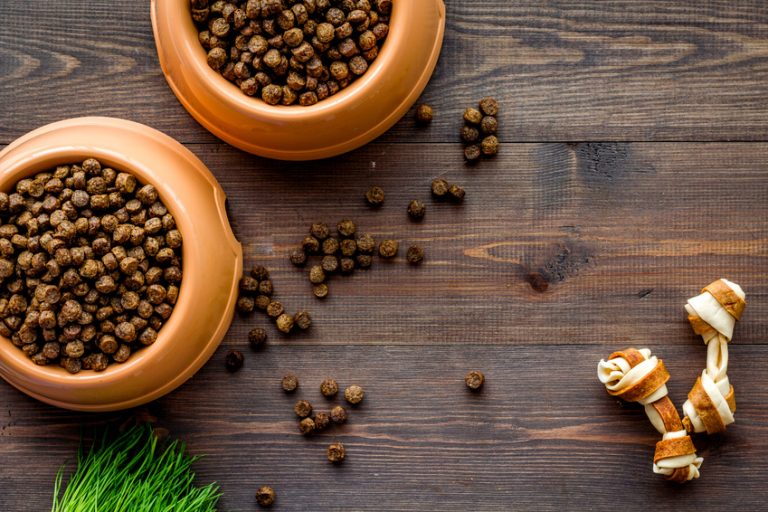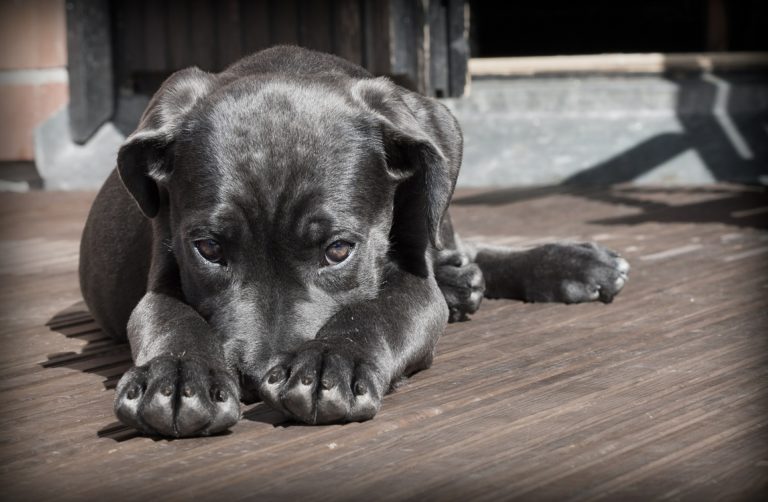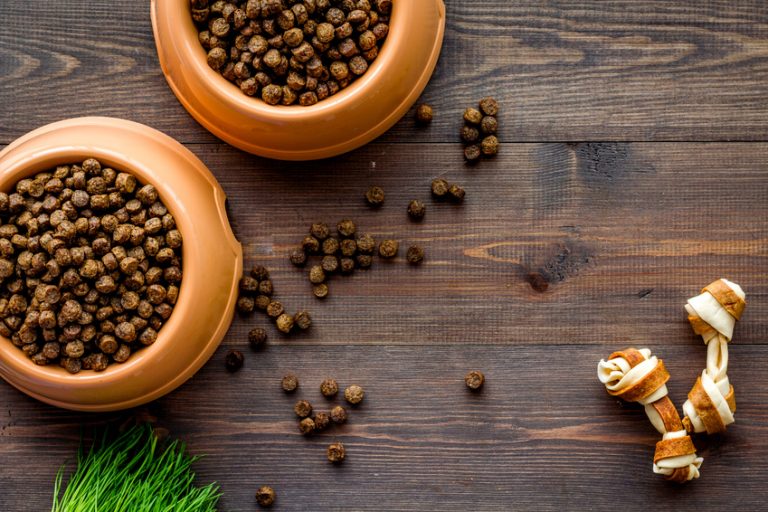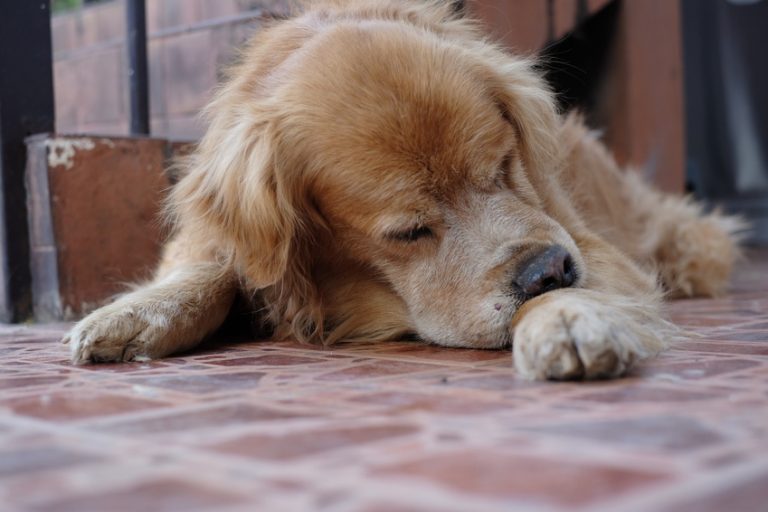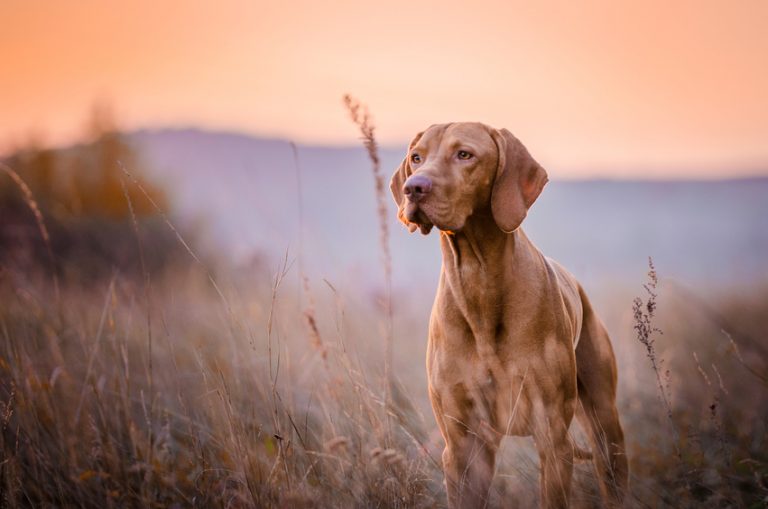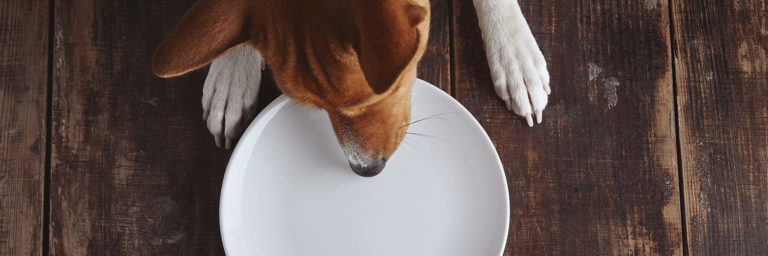Why Dogs Lick Their Paws and How to Stop it
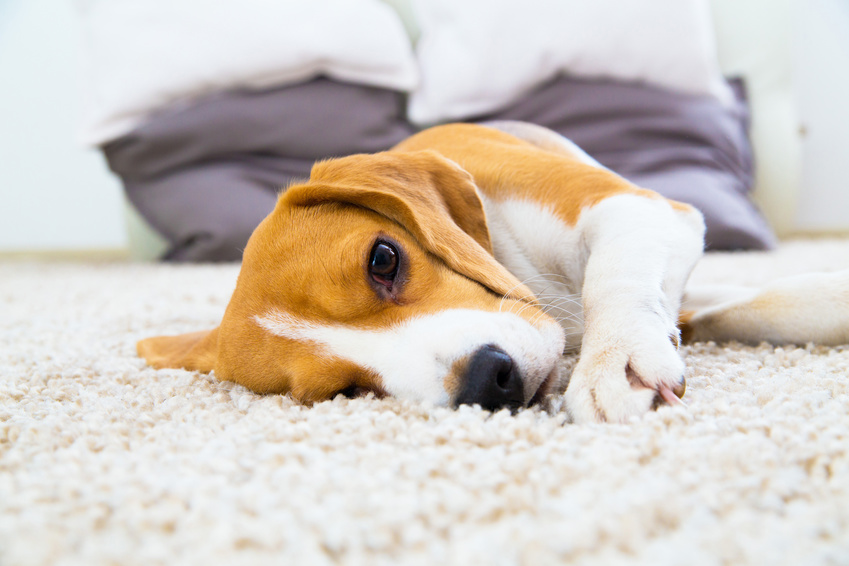
Dogs don’t spend half their day grooming themselves like cats do.
It simply isn’t in their nature.
But sometimes dogs lick their paws – they may even chew on them.
What is the reason behind this behavior, and is it something you should be concerned about?
There is no simple answer, but here’s what you need to know:
- There are many reasons for a dog licking his paws.
- And yes, it should be cause for concern in some situations.
Keep reading to learn more:
Why Do Dogs Lick Their Paws?
If your dog is licking his paws, it could be for several reasons:
- Your dog has itchy paws
- Your dog is bored
- Your dog’s paws are hurting him
- Your dog is anxious
Now, let’s explore each of these options in greater detail.
Do you know How Many Teeth Do Dogs Have?
Itchy Paws:
If your dog starts licking his paws more than usual, or if you notice your dog chewing on his feet, it could be a sign of allergies. Yes, dogs can suffer from allergies just as much as you do, but the symptoms may present in different ways.
Atopic allergies, or contact allergies, can give your dog itchy paws and skin. These allergies can be caused by anything from pollen, dust, or weeds to cleaning products or chemicals in your yard. Dogs can also develop an allergy to flea bites, so check your dog as well as his bedding for flea dirt, a sure sign that your dog is suffering from fleas.
Your dog’s paw licking behavior could also be the result of food allergies. While food allergies in people typically cause digestive symptoms like nausea or vomiting, they more commonly cause skin problems in dogs. Skin problems that can extend to your dog’s paws.
Next, let’s talk about boredom.
Boredom:
Dogs can get bored just as easily as people do if they don’t have anything to keep them occupied.
Sure, your dog spends half his day sleeping, but if he doesn’t get enough exercise during the day or if he isn’t getting enough attention, he could become bored and that might lead him to start licking his paws. This is particularly common in dogs that have high energy levels. Without enough exercise, these dogs may develop compulsive behaviors like paw licking or foot chewing.
Moving on to the next cause – pain.
Painful Paws:
If your dog suddenly starts licking his paws more often than usual, take a closer look!
Are your dog’s paws swollen? Red? Bleeding?
Any of these things could be a sign of infection or injury and you shouldn’t ignore it!
Your dog’s pain could be caused by anything from an insect bite to a broken nail. Even if it isn’t infected already, it could become infected if you don’t take care of the problem and clean the wound thoroughly. If you don’t see any outward signs of injury, don’t just let it go – take your dog to the vet to check for an underlying problem like a muscle sprain or a bone fracture.
Okay, on to the next cause of dog paw licking – anxiety.
Anxiety:
Dogs can suffer from anxiety in much the same way that people do.
If your dog spends a lot of time alone at home, he could develop separation anxiety. To deal with his anxiety, your dog might develop compensatory or even compulsive behaviors like whining, foot licking, paw chewing, barking, or even attempted escape.
If you don’t address the underlying cause of your dog’s anxiety, his paw licking behavior could lead to raw, inflamed paws which also comes with a risk for infection.
Don’t ignore changes in your dog’s behavior!
Your dog can’t communicate with you verbally and dogs have a natural instinct to hide pain and weakness. The only way you’re likely to realize that your dog is sick or if he is in pain is by noticing a change in his behavior.
So, what should you do if your dog starts licking his paws more often?
Take him to the vet!
When you take your dog to the vet for excessive paw licking, be prepared to discuss any changes in behavior as well as other symptoms. Try to pinpoint when the behavior started to see if you can connect it with some kind of incident or change to your dog’s routine.
Once your vet identifies the problem, he can recommend a solution.
So, how do you stop dog paw licking?
Here are some suggestions:
How to Stop Your Dog from Licking His Paws
If your vet isn’t able to find any physical injury or infection as the cause for your dog’s paw licking behavior, you need to think about things like boredom and anxiety.
In cases where boredom is the cause for excessive paw licking, the solution is simple:
Spend more time with your dog!
As a dog owner, your dog’s health and wellness is your responsibility and it is part of your job to make sure that he is happy. This means spending plenty of quality time with him, both in play and at rest. Make sure your dog gets enough exercise everyday as well – don’t skip your daily walk!
If anxiety is your dog’s problem, the solution might not be quite so simple. You may have to work with your dog to address the underlying cause of his anxiety.
One thing that may help is to give your dog a special toy or treat when you leave the house and then take it away when you return. The toy or treat will help to draw your dog’s focus while you’re making your exit and it will keep him busy while you’re gone. Taking the treat away when you return will help your dog form a positive association between the treat and you leaving the house – this may be enough to counteract his anxiety about your absence.
When dog paw licking gets bad enough that your dog actually licks his paws raw, you may need to treat them to reduce pain and swelling and to prevent infection.
The most important thing you need to do is keep your dog’s paws clean and dry.
You can clean your dog’s paws several times a day with baby wipes or your vet might recommend an antibacterial cleaning solution. In some cases, your vet may also prescribe antibiotics or steroids to combat infection or he may give you an antibacterial topical application to use on your dog’s paws.
If your dog’s paw licking behavior is caused by food allergies, switch your dog to a limited ingredient diet for about 12 weeks until all signs of the infection go away. A limited ingredient diet is simply a type of dog food that contains a lower number of main ingredients than standard dog food which reduces the number of potential allergens. These formulas are also often made with novel sources of protein and carbohydrate (novel simply means an ingredient your dog hasn’t eaten before) to help eliminate allergens from the dog’s diet.
Once your dog recovers from the allergy, you can keep feeding him the limited ingredient diet or switch to a regular formula made with ingredients that won’t bother your dog.
If all else fails and your dog’s paw licking behavior is simply a compulsion that he develops, you can try bitter sprays to discourage licking or put your dog in an e-collar until the wounds heal.
So, what’s the takeaway here?
Pay attention to your dog’s behavior! If it suddenly changes, there is probably a reason for it and you should make it your priority to find out what that reason is.

